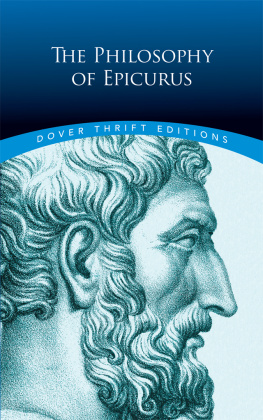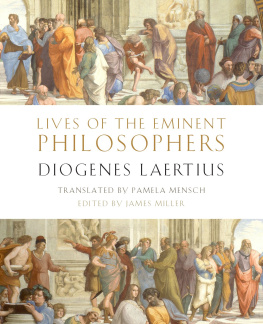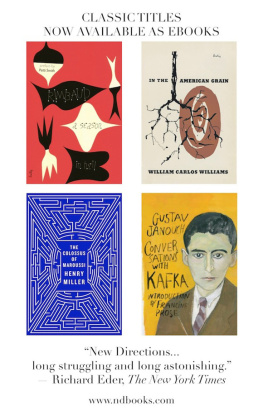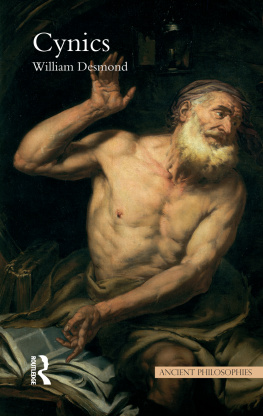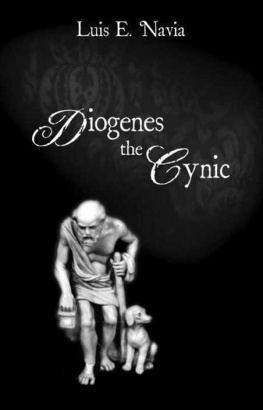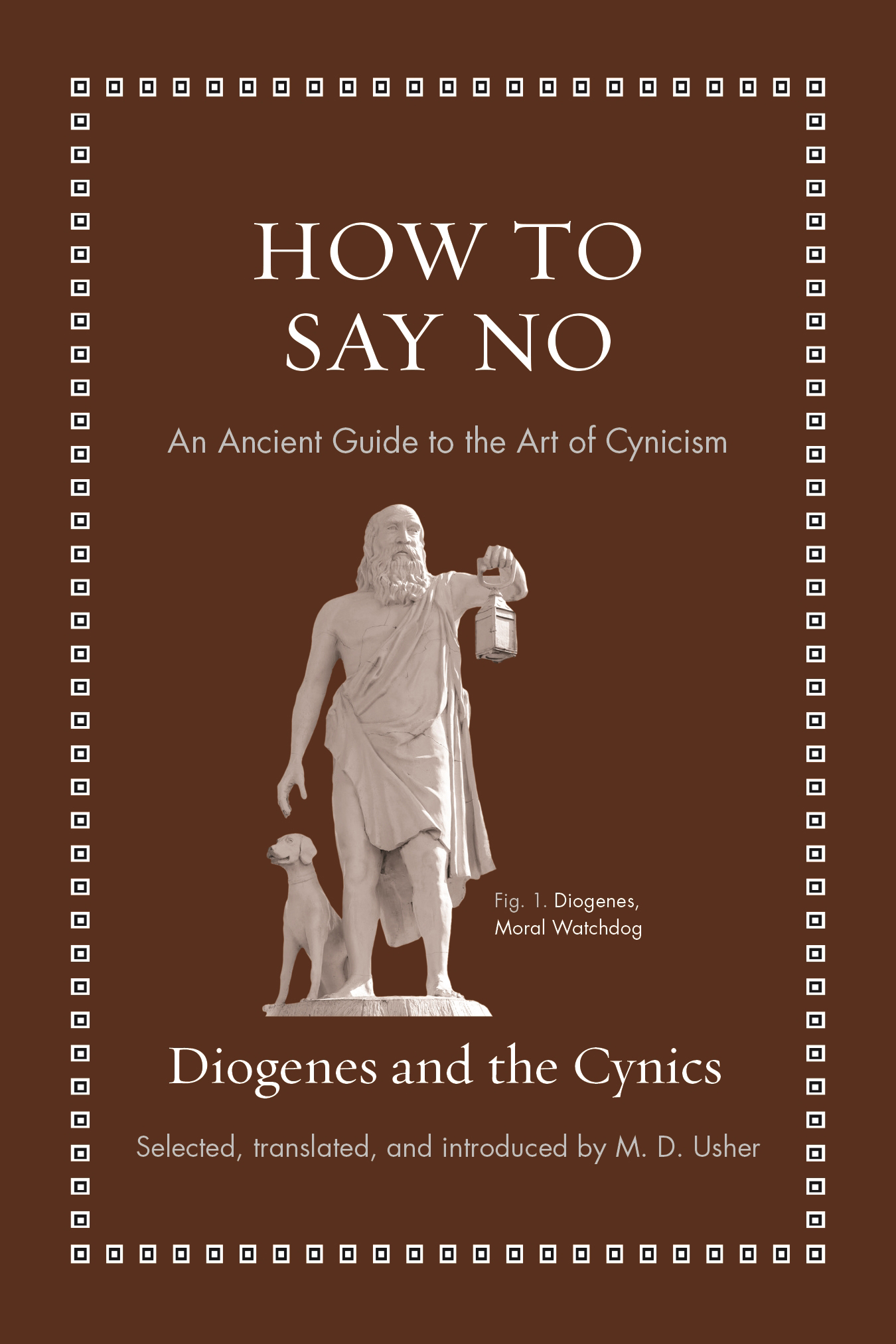HOW TO SAY NO
ANCIENT WISDOM FOR MODERN READERS

For a full list of titles in the series, go to https://press.princeton.edu/series/ancient-wisdom-for-modern-readers.
How to Tell a Story: An Ancient Guide for Aspiring Writers by Aristotle
How to Stop a Conspiracy: An Ancient Guide for Saving a Republic by Sallust
How to Be a Farmer: An Ancient Guide to Life on the Land by Many Hands
How to Innovate: An Ancient Guide to Creative Thinking by Aristotle
How to Tell a Joke: An Ancient Guide to the Art of Humor by Marcus Tullius Cicero
How to Keep an Open Mind: An Ancient Guide to Thinking Like a Skeptic by Sextus Empiricus
How to Be Content: An Ancient Poets Guide for an Age of Excess by Horace
How to Give: An Ancient Guide to Giving and Receiving by Seneca
How to Drink: A Classical Guide to the Art of Imbibing by Vincent Obsopoeus
How to Be a Bad Emperor: An Ancient Guide to Truly Terrible Leaders by Suetonius
How to Be a Leader: An Ancient Guide to Wise Leadership by Plutarch
How to Think about God: An Ancient Guide for Believers and Nonbelievers by Marcus Tullius Cicero
How to Keep Your Cool: An Ancient Guide to Anger Management by Seneca
How to Think about War: An Ancient Guide to Foreign Policy by Thucydides
How to Be Free: An Ancient Guide to the Stoic Life by Epictetus
How to Be a Friend: An Ancient Guide to True Friendship by Marcus Tullius Cicero
How to Die: An Ancient Guide to the End of Life by Seneca
HOW TO SAY NO

An Ancient Guide to the Art of Cynicism
Diogenes and the Cynics
Selected, translated, and introduced by M. D. Usher
PRINCETON UNIVERSITY PRESS
PRINCETON AND OXFORD
Copyright 2022 by Princeton University Press
Princeton University Press is committed to the protection of copyright and the intellectual property our authors entrust to us. Copyright promotes the progress and integrity of knowledge. Thank you for supporting free speech and the global exchange of ideas by purchasing an authorized edition of this book. If you wish to reproduce or distribute any part of it in any form, please obtain permission.
Requests for permission to reproduce material from this work should be sent to
Published by Princeton University Press
41 William Street, Princeton, New Jersey 08540
99 Banbury Road, Oxford OX2 6JX
press.princeton.edu
All Rights Reserved
Library of Congress Cataloging-in-Publication Data
Names: Diogenes, -approximately 323 B.C., author. | Usher, M. D. (Mark David), 1966 translator.
Title: How to say no : an ancient guide to the art of cynicism / Diogenes and the cynics ; selected, translated and introduced by M.D. Usher.
Description: Princeton : Princeton University Press, [2022] | Series: Ancient wisdom for modern readers | Includes bibliographical references.
Identifiers: LCCN 2022006920 (print) | LCCN 2022006921 (ebook) | ISBN 9780691229850 | ISBN 9780691229867 (ebook)
Subjects: LCSH: Cynics (Greek philosophy) | BISAC: PHILOSOPHY / History & Surveys / Ancient & Classical | PHILOSOPHY / Ethics & Moral Philosophy
Classification: LCC B508 .D56 2022 (print) | LCC B508 (ebook) | DDC 180dc23/eng/20220218
LC record available at https: / /lccn.loc.gov/2022006920
LC ebook record available at https: / /lccn.loc.gov/2022006921
Version 1.0
British Library Cataloging-in-Publication Data is available
Editorial: Rob Tempio and Chloe Coy
Production Editorial: Mark Bellis
Text Design: Pamela Schnitter
Jacket Design: Heather Hansen
Production: Erin Suydam
Publicity: Maria Whelan and Carmen Jimenez
Copyeditor: Lachlan Brooks
Jacket Credit: Philosopher Diogenes Sculpture/recebin/Shutterstock
I like the sayers of No better than the sayers of Yes.
Ralph Waldo Emerson, Journals Vol. 3, p. 122
CONTENTS
- ix
- xi
Doggerel (A Sonnet)
Life is a dog and then you die. Day in
day out of bed youre rung, bite back a yawn,
or nip a tick or two of sleep ere when
you shake and roll awake your groggy brawn;
you at the mirror paw: two sunken jowls,
one wispy, tonsured head, soon brushed away.
You speak!in rueful, apathetic howls,
forever hunched at desk to sit and stay.
You play as dead and fawn like pup supine,
unbarked; you beg then defecate the dollar,
then, weary, wag your head, for more to pine.
Clad in dogtooth, choked with Oxford collar
like Hades hound you lope along: your bone
is charmed, and as heavy in the head as stone.
INTRODUCTION
Greeks have been saying no since at least October 28th, 1940. So-called Ochi Day (ochi means no in Modern Greek) commemorates Greek Prime Minister Ioannis Metaxass refusal to accept terms of capitulation tendered by Mussolini and the Axis powers at the onset of World War II. So momentous was that refusal in the Greek psyche that the day is now celebrated as the national holiday of Greek independence. But in fact, Greeks have been saying no for much longer than that. Achilles declined to fight Trojans for the benefit of an inferior commanding officer. (The Trojans never did nothin to me, he effectively tells Agamemnon in the Iliad. His fellow citizens executed him regardless.
Diogenes of Sinope, the founder of Cynicism, stands in this tradition of naysaying. That would be a very neat and tidy way of introducing himif only it were true. But the truth is rather that Diogenes stood outside all traditions. Diogenes pitted a life lived according to Nature against one lived in unthinking compliance with Custom. In a sense, every sentence he utters contains a no in it. His nonconformity to convention is nicely epitomized in this anecdote: Most people go crazy over a finger, Diogenes used to say. If you walk around with your middle finger extended, a person will think youre nuts, but if you use your forefinger, its no problem!
Diogeness indecent behavior and rough, out-of-doors living earned him a nickname: the Dog, which is what the Greek word kun, whence the adjective kunikos (Cynic), means. Anyone who has visited modern Athens will have seen or experienced the citys motley assortment of ownerless dogs roaming the streets and alleyways, pawing through garbage bins, and lounging in the Mediterranean sun (or porticoed shade) amidst the dilapidated remains of high civilization. That is exactly how we are to picture the ancient Athenians picturing Diogenes. With typical self-effacing irony Diogenes embraced the moniker, casting himself as the citys moral watchdog, barking the truth to passersby and biting back at rogues. I will let the selections in this volume speak for themselves on the further details of these matters and introduce some of the major players and key concepts of this way of life. Suffice it to emphasize here that the Cynics were not scholars or writers. Their mode of life was a philosophy of doing.
And yet the Cynics did purvey some core values that distinguished them in their own time and, I believe, recommend them to ours. Indeed, I think they speak with some urgency to our current predicaments involving climate change, socioeconomic uncertainty, and psychic malaise. Their less is more approach to living anticipates the lifestyle experiments of popular culture moguls like thrifty investment advisor Mr. Money Mustache (aka Peter Adeney)


